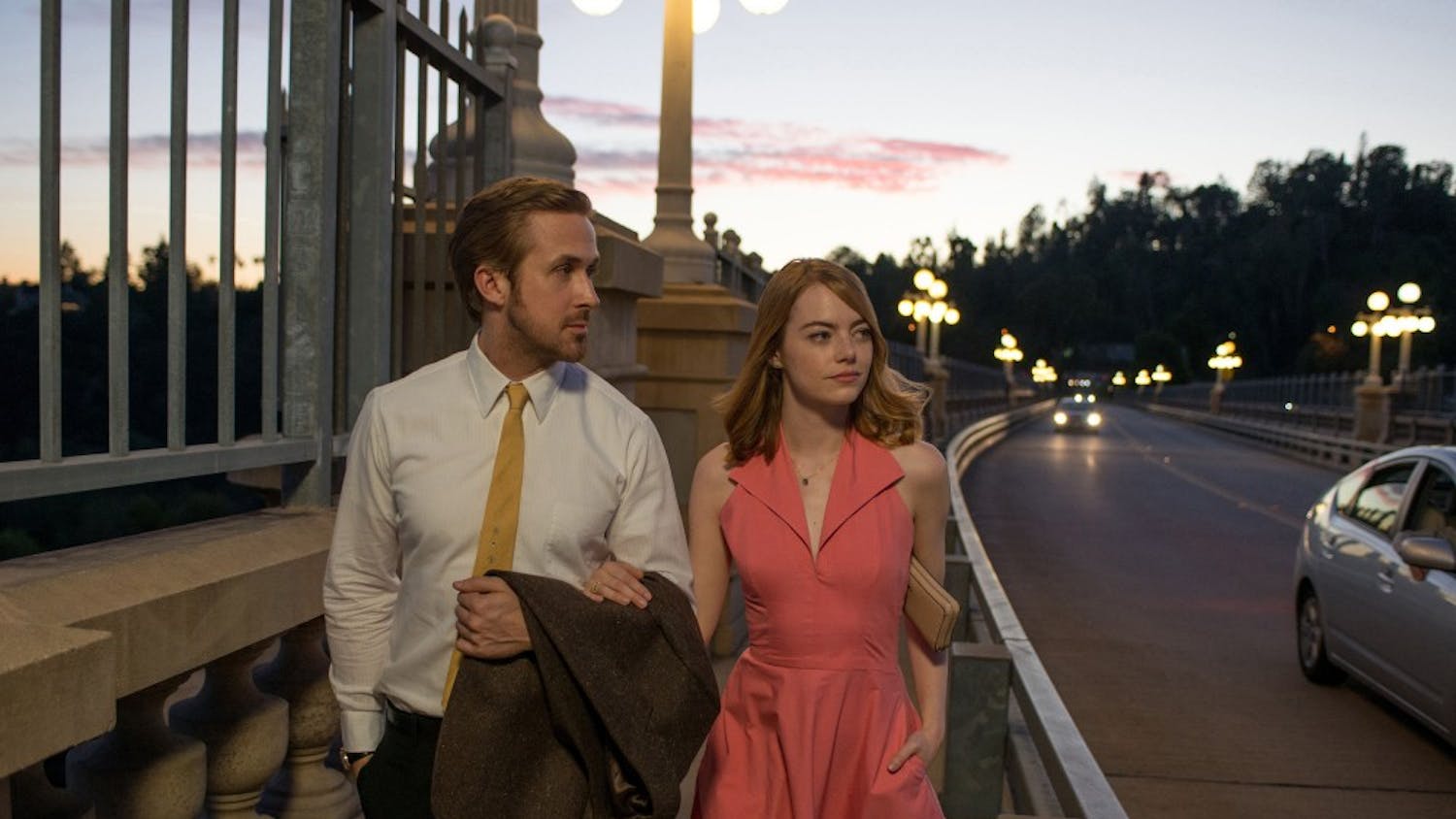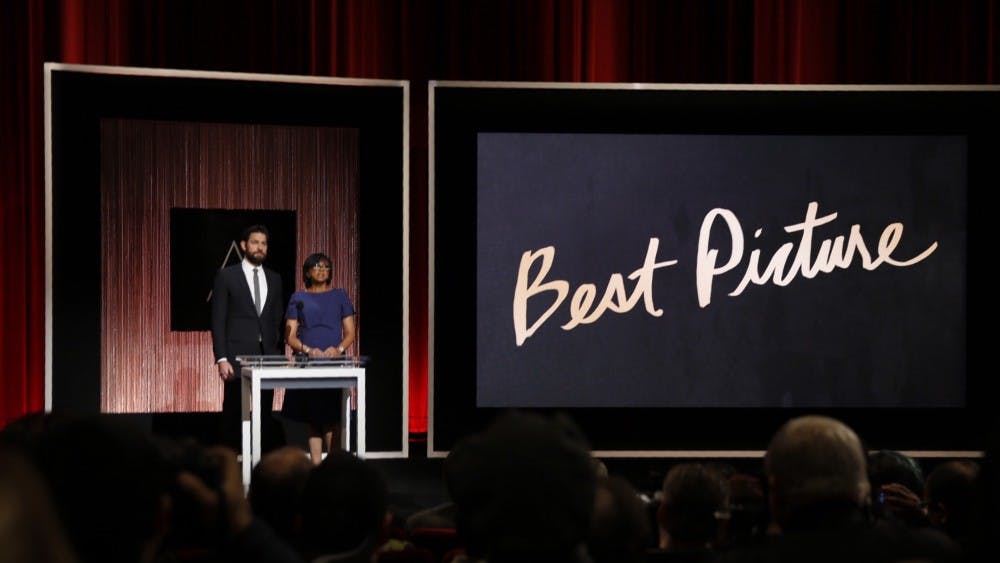When describing his life's work, director Martin Scorsese once made the astute observation that cinema is "a matter of what's in the frame and what's out." After seeing his latest masterwork, "The Departed," thrice already, I think I can better understand what he meant.\nDon't fret. This is not a glowing review of "The Departed" from a longtime Scorsese devotee. I'll leave that to my esteemed colleague in this issue's Reviews section.\nThis is, however, my attempt to decipher what exactly makes Martin Scorsese, after more than 20 feature films and 40 years in the business, the greatest American film director alive today.\nFace value would suggest this is an easy task. He makes great films, and why not leave it at that? Many of Scorsese's peers, from Spielberg to Malick to Altman, are alive and making great films, too, and yet these directors' films, despite all their inherent style and impact, don't feel quite as vital and organic as a Scorsese picture. This is a filmmaker whose relative failures ("Bringing Out the Dead," "Cape Fear," "Kundun") still runneth over with their maker's wellspring of talent and ideas.\nMy knowledge of Scorsese's filmography begins in the mid-to-late 1970's. I've never seen "Boxcar Bertha" or "Alice Doesn't Live Here Anymore," and it's been years since I watched "The King of Comedy." After watching "The Departed" last weekend, I was inspired to revisit the majority of my Scorsese DVDs. What I began to notice after re-watching "GoodFellas," "Mean Streets," "Casino," "Taxi Driver," Raging Bull," The Aviator" and "Gangs of New York" is how so many aspects of those films showcase Scorsese's personal filmmaking flair in such a way that it resonates with audiences long after they leave the theatre (or power off the DVD player).\nIf anyone deserves as much credit for making Scorsese's films tick, it's his longtime editor, Thelma Schoonmaker. From her dizzying, almost schizophrenic work in "GoodFellas" to the wonders she works in "The Departed," Scorsese and Schoonmaker's work over the last quarter century has defined the pacing of modern films. Rather than simply editing scenes together in a coherent, logical way, Schoonmaker, instead, cuts for a specific aesthetic effect; often interpolating multiple scenes at once to highlight their combined correlated effects. Working on her first feature film with Scorsese, 1980's "Raging Bull," her cutting of Robert De Niro's boxing scenes made the viewers feel like they were the ones being beaten bloody. In short, the editing in a Scorsese film often achieves that rare effect of making audiences feel the action and the emotions of the characters, for better or worse.\nAlways responsible for the soundtrack selections and music cues in his films, Scorsese has an ability surpassing any director other than Quentin Tarantino for using music as a means to enhance scenarios that would otherwise be mundane or perfunctory. From the traditional Irish immigrant songs used to further authenticate "Gangs of New York" to the drug-fueled amalgam of classic rock that accompanies Henry Hill's run from a helicopter in "GoodFellas," every song is chosen for calculated effect. The cathartic usage of the Dropkick Murphy's Woody Guthrie cover "I'm Shipping Up to Boston" in "The Departed" is further proof that when it comes to making the most of music's massive effect when combined with film, very few if anyone has as sharp an ear as Scorsese.\nMost modern directors use violence for exploitative purposes. Scorsese, contrarily, employs his bullets and blood with operatic effect. When Travis Bickle in "Taxi Driver" finally reaches his breaking point, his rampage against a pimp and his brothel plays out like a Greek tragedy of gore. The depiction of Howard Hughes' plane crash in "The Aviator" uses the eccentric icon's own blood as a metaphor for his grandiose failures, and the opening battle in "Gangs of New York" is the closest thing Scorsese has ever filmed to a pure bloodbath; the red vino spurting from the immigrants' veins becoming part of the foundation on which New York City was built.\nBuilding strong relationships with actors must be in the repertoire of any great director, and Scorsese's aptness for this has been evidenced by his close relationships with both Robert De Niro and Leonardo DiCaprio. Aside from coaxing brilliant performances out of these men at every turn, he also built their careers, for which they both owe him major debt. Based on his turns in "Mean Streets," "Taxi Driver" and "Raging Bull," De Niro went on to a legendary career that only led him back to Scorsese for his best roles of the 1990's in "GoodFellas" and "Casino." DiCaprio, once given credit only as a teen idol, used roles in "Gangs of New York," "The Aviator," and his finest performance ever in "The Departed" as a springboard to a seriously respected dramatic career. With his ability to draw memorable performances out of all of his stars, as well as forge lasting relationships with the best of them, Scorsese has proven himself an actors' director of the highest order.\nMuch has been made of "The Departed" being a return to form for Scorsese, as if to say his only great films are crime yarns. While the crime genre is where he appears to feel most at home, it is certainly not his fallback. Whether working in the realm of biopics ("The Aviator," "Raging Bull"), comedy ("The King of Comedy," "After Hours") or documentary ("The Last Waltz," "No Direction Home: Bob Dylan"), Scorsese brings the same intensity to every project, and can truly be called a renaissance man in the filmmaking realm.\nMy search to pinpoint what makes Martin Scorsese our greatest living American director seems to, after all aspects of sight and sound have been analyzed, come to a halt more so in the realm of the intangible. What he brings to each and every one of his films can be felt, seen and heard on the screen, but at that same time it's sensed as more of a cumulative effect of all those things, with no particular single aspect rushing to the fore.\nIt could simply be supposed that, more than any living American director, Scorsese's deep love of the filmmaking craft finds its way into the frame most successfully. The difference between Scorsese and his contemporaries -- the single aspect of his films that elevates them above the level on which most other directors are working today -- lies in what's in the frame and what's out. \nWhen reminiscing about his youth, Scorsese is often quoted as saying "I just wanted to be an ordinary parish priest." For the sake of the film-going community, let us give thanks that he ultimately chose a different career path.
What's in the frame
LAST WORD
Get stories like this in your inbox
Subscribe





